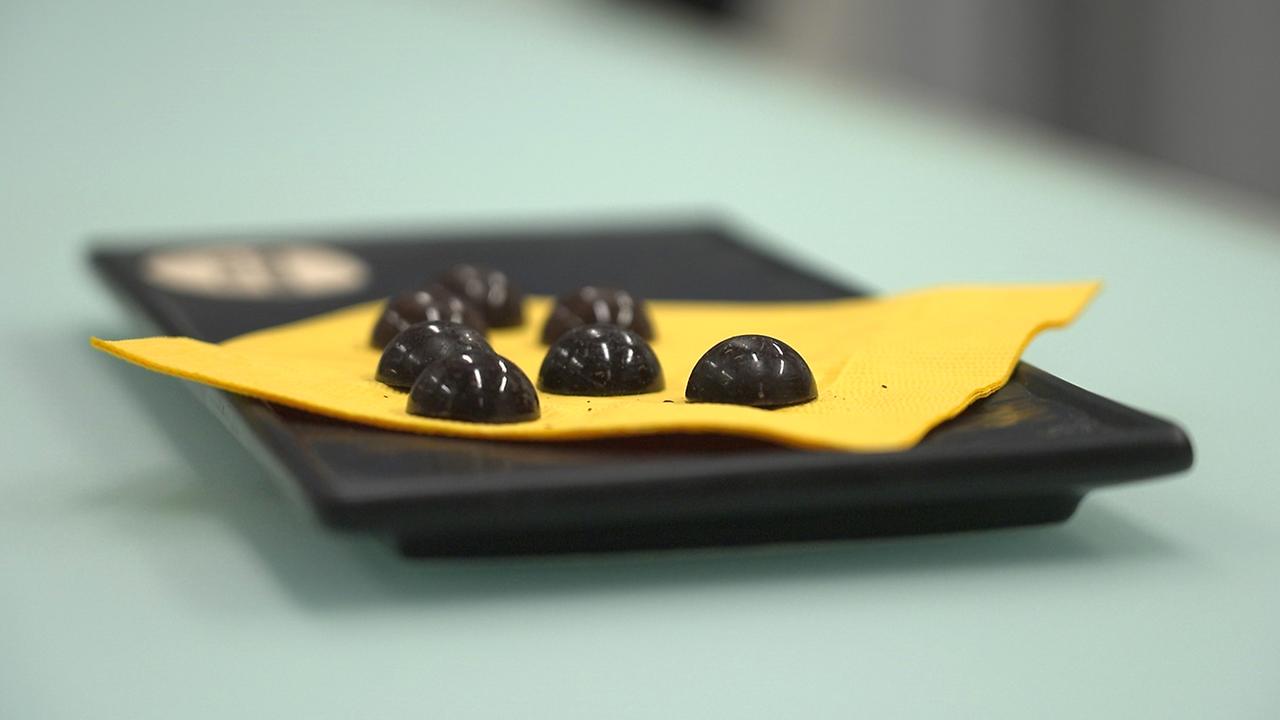For many people, chocolate is part of Christmas. But the cultivation of the classic cocoa bean also has bitter sides. A Swiss start-up is working on an alternative: cocoa powder from the bioreactor.
It is a surgical procedure of a slightly different kind: with great concentration, Adriana Gallego cuts tiny particles from a cocoa bean from Costa Rica with a scalpel in the laboratory of the Food Brewer company. The biotechnologist, who has a doctorate, removes the cells that are responsible for the growth of the bean. She then uses tweezers to place the pieces in a plastic flask containing a special nutrient solution. Using circular movements, she gently shakes the flask by hand a few times. If the liquid moves, the cells do not sink and receive oxygen.
Later, a machine takes over this task for several weeks. During this time, the small pieces of cocoa beans grow into clumps of cells. They get everything they need from the nutrient solution. Their composition is a trade secret of the Food Brewer company.
In the bioreactor, clumps of cells are supposed to grow in the nutrient solution – until they are ready for harvest.
From the cell to cocoa powder
After a few weeks the journey continues: out of the plastic flask and into a steel bioreactor. There, the cocoa bean cell clumps continue to grow in even more nutrient solution. The heart of the steel tank is a circulation unit, which has long been used in brewing beer.
After a few days in the bioreactor, the cell clumps have grown again and are ready for harvest. The whole thing looks like a brown paste – not like cocoa beans. The company does not recreate this, but rather cocoa powder. After skimming, the paste is dried and the cocoa powder obtained in this way can be further processed into chocolate or a spread.
Industrial production as a goal
The process can be traced back to the research of university professor Tilo Hühn, who has been researching novel foods at the Zurich University of Applied Sciences for more than 20 years. Food Brewer wants to enter industrial production.
In principle, you can use this process to produce an infinite amount of chocolate from a fraction of a cocoa bean, explains Christian Schaub. The engineer co-founded the company two and a half years ago. In addition to scientists, a beer brewer and a beer brewer are currently working at the start-up in Horgen on Lake Zurich. Christian Schaub emphasizes that they have learned from scratch what food brewers ultimately do: brewing food. Instead of beer, use cocoa powder or coffee. In the foreseeable future, the start-up wants to venture into grain.
“No more scientific whimsy”
According to “Food Brewer”, work in the laboratory is the first step in starting the reproduction process of the cocoa cells. The scientists are also currently testing which types of cocoa beans and which nutrient solutions are particularly suitable for the production process. At some point, says Christian Schaub, this will also be resolved. The manufacturing process can then take place in industrial production halls.
Food Brewer isn't the only company working on growing cocoa powder “in vitro.” Christian Schaub says he knows at least four others. However, the food brewer founder believes that his company pays more attention than the others to ensuring that the product can be produced industrially and on a large scale to cover costs.
“What we are doing here is not some scientific whimsy from the academic ivory tower, but rather a way to produce chocolate sustainably,” says Schaub. It is already clear that the start-up only supplies the basic material for this, but will not start producing chocolate itself.
Market launch still open
The product from Horgen on Lake Zurich is not yet ready for the market. According to Food Brewer, around 20 chocolate and food manufacturers from Switzerland, Europe and especially the USA are currently testing cocoa powder. They try to give it their own flavor, style and shape by adding sugar and other substances.
The start-up, in turn, is committed to supplying cocoa powder on a large scale according to the corporations' taste requirements – for example, giving it a bitter note or a more malty taste. This can be controlled by choosing the source bean and the composition of the nutrient solution. Christian Schaub assumes that the first products manufactured in this way will come onto the market in the USA. When is still unclear.
No competition with cocoa farmers?
When asked whether Food Brewer's production method was depriving cocoa farmers in Africa, Asia or Latin America of their livelihoods, the company responded calmly. Christian Schaub assures that he and his team have already dealt intensively with this topic. And the answer is: not at all.
Cocoa farms already have problems finding enough staff. In addition, the demand for cocoa, as well as for coffee, is constantly growing: “Food Brewer's only aim is to close the ever-widening gap between supply and demand, we don't take anything away from anyone.”
And what does the “in vitro” chocolate taste like? In terms of melting, it is very similar to conventional chocolate. And depending on the variety and the amount of sugar added, the taste tends to be more malty or fruity.
Sandra Biegger, ARD Geneva, tagesschau, December 23, 2024 1:54 p.m





